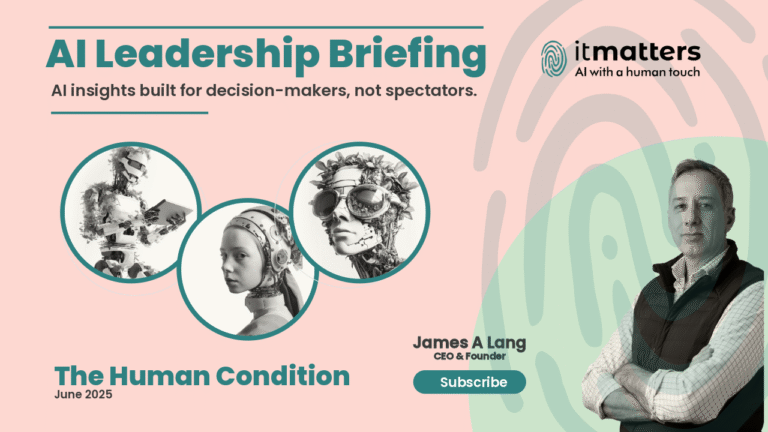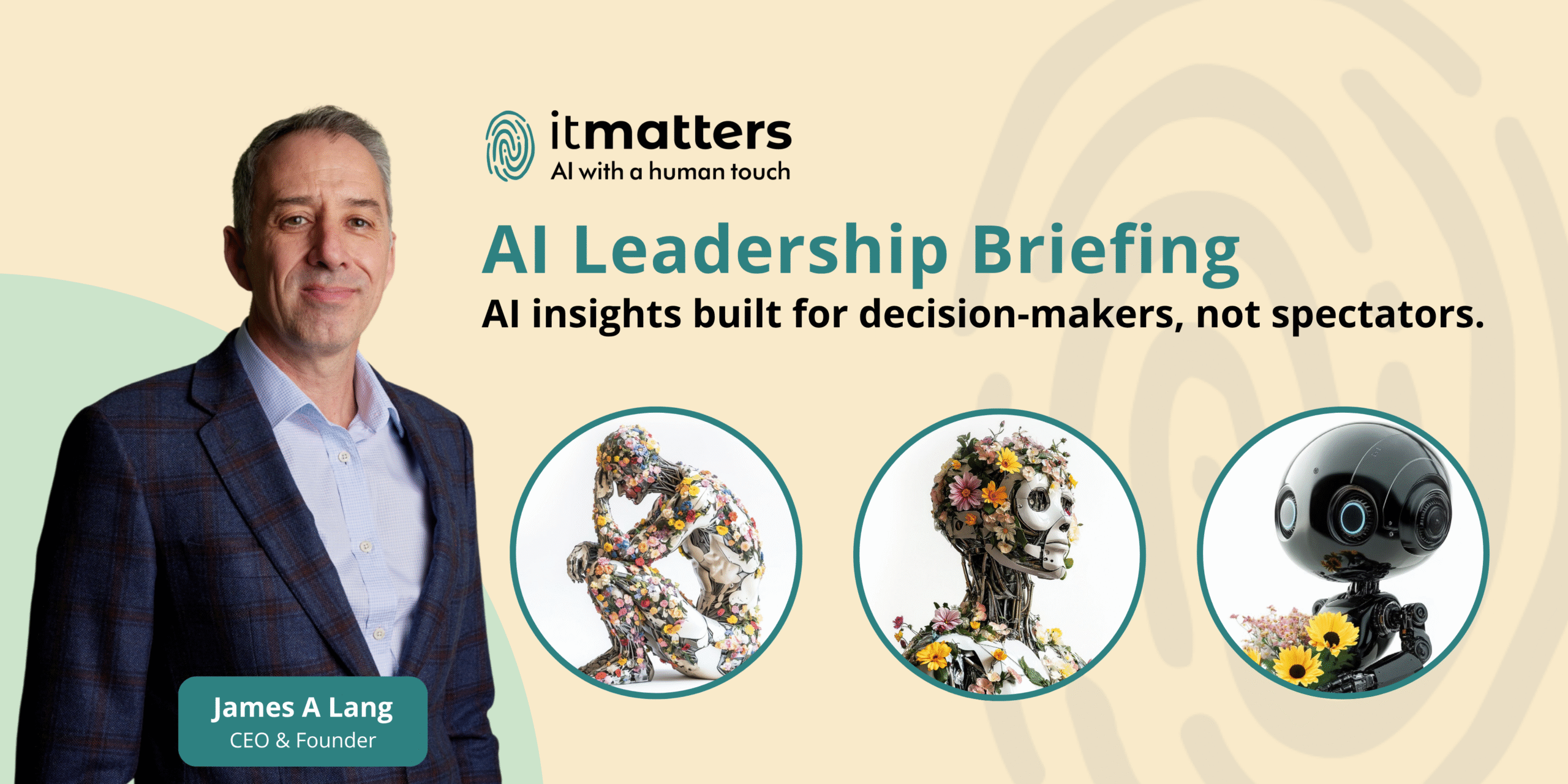Here is the Thursday 12 June 2025 edition of The itmatters AI Leadership Briefing, continuing Week 2 – Synthetic Empathy in The Human Condition series.
The itmatters AI Leadership Briefing
AI insights built for decision-makers – not spectators.
Series: The Human Condition – Week 2: Synthetic Empathy
Edition Date: Thursday 12 June 2025
How Human-Centered AI is Rewriting Workplace Wellbeing
AI in the Workplace: When Empathy Is Simulated, Not Felt
Exploring Human-Centered AI in Customer Experience and Culture
Today’s AI-powered HR platforms offer a new kind of digital care: performance nudges, mental health check-ins, and mood summaries delivered through dashboards. These tools aim to humanize the employee experience – but is simulated empathy enough?
This week, The itmatters AI Leadership Briefing explores how AI in customer experience is expanding internally into employee experience – often without the cultural scaffolding required to make it meaningful.
Reflective Human Insight
Workplace empathy is hard.
It’s time-intensive, emotionally intelligent, and built on trust.
When businesses automate concern, they risk replacing empathy-driven leadership with AI-powered sentiment metrics. What’s lost is human connection – and what’s gained isn’t always understanding.
Today’s Tactical Signals
1. Microsoft Viva Expands Sentiment Tracking for Managers
Managers now receive weekly “team mood summaries” based on employee emails, meeting tone, and internal communications.
Why it matters: Leaders may mistake analytics for awareness. Emotional dashboards aren’t relationship substitutes.
(Microsoft Viva, 2025)
2. BetterUp Launches AI Coaching Companion
The new virtual assistant offers performance feedback and resilience advice between live coaching sessions.
Why it matters: Support is useful – until it replaces nuance with nudges.
(BetterUp Labs, 2025)
3. Headspace for Work Adds “Care Nudges”
The wellness platform’s workplace offering now sends personalised check-in prompts to employees based on usage and calendar patterns.
Why it matters: Mental health reminders are important – but without systems behind them, they can feel empty.
(Headspace Health, 2025)
4. UK Employment Tribunal Cites AI Wellness Prompt in Dispute
An unfair dismissal case referenced employer use of an AI wellness platform that flagged employee “burnout risk” but took no follow-up action.
Why it matters: Simulated care without policy creates legal risk – and real harm.
(UK Employment Law Journal, 2025)
5. MIT Study Finds Empathy Bots Increase Short-Term Trust, Decrease Long-Term Loyalty
Workers reported feeling more “noticed” but also more surveilled when emotional analytics were used without transparency or consent.
Why it matters: Workplace wellbeing is about culture – not just data signals.
(MIT Centre for Digital Work, 2025)
Field Note from the Future
It’s 2026. An employee receives weekly support nudges from the company AI.
It reminds them to speak up.
But when they do – nothing happens.
The system said it cared.
The culture claimed it cared.
But no one actually listened.
Why it matters for leaders:
You can’t outsource organizational empathy. AI strategy must include policy, practice, and people.
Summary (Leadership Action)
To align your AI strategy with real human outcomes, ensure that AI-driven care tools are backed by:
- Human accountability – Clear follow-through channels.
- Cultural alignment – Supportive norms and leadership modeling.
- Operational clarity – Defined escalation paths when issues arise.
- Empathy as a service is not a substitute for a culture of care. And your employees can tell the difference.
Historical Leadership Quote
“People don’t care how much you know until they know how much you care.”
– Theodore Roosevelt
Orders of the Day
Subscribe to the newsletter to stay ahead of the AI curve.
itmatters brings you the clarity, context, and credibility needed to lead in a shifting world.
Tomorrow’s Preview
When Empathy Becomes Manipulation – What happens when synthetic care becomes persuasion?



